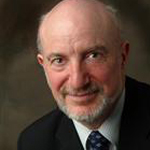4th Closed Scientific Expert Meeting of the Editorial Board

How does PCSK9 inhibition influence cholesterol metabolism in humans?
In the absence of clear evidence, Professor Bo Angelin, Karolinska Institutet at Karolinska University Hospital, Stockholm, Sweden discusses what might be expected from the acute and long-term effects of PCSK9 inhibition.
read more »
PCSK9 Inhibitors for Treatment of High Cholesterol levels: Effectiveness and Value
Ciaran Kohli-Lynch, working with Professor Andrew Briggs, University of Glasgow, UK critically appraises the findings and implications of the Institute for Clinical and Economic Review (ICER) report regarding the value of PCSK9 inhibitors in high cardiovascular risk patients. A summary of the report was published as:…
read more »
Lipoprotein-associated PCSK9: Physiological implications?
Professor Sergio Fazio, The Knight Cardiovascular Institute of OHSU, Portland, USA overviews the physiological implications of lipoprotein-associated PCSK9. Studies show that only 40% of total plasma PCSK9 associates with LDL. This raises a key question: Does lipoprotein-bound PCSK9 more accurately reflect PCSK9 activity?
read more »
Legacy effects: Does early intensive LDL lowering treatment modify the atherosclerotic process?
Professor Packard, College of Medical, Veterinary and Life Sciences, University of Glasgow, Glasgow, UK discusses follow-up data from major statin trials and considers the potential mechanism for the legacy effect seen in some trials, such as WOSCOPS. These findings raise a key question: Would phased…
read more »







